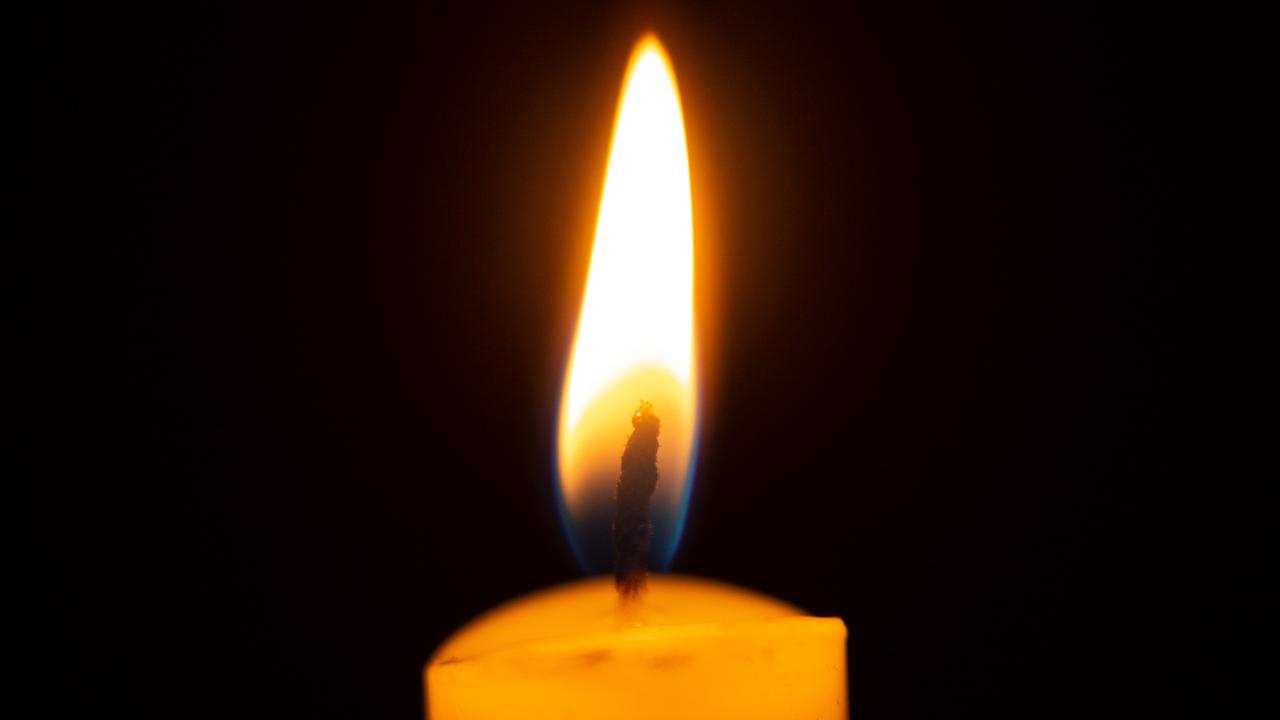Richard Youden, 93, travelling to Gallipoli in the footsteps of his father
THIS week, Richard Youden’s feet will rest on the bare gravel of the outpost that carries his family name; the Lone Pine position his father protected.
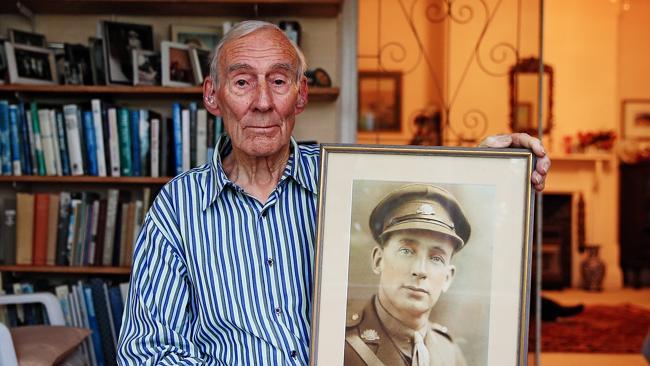
ANZAC Centenary
Don't miss out on the headlines from ANZAC Centenary. Followed categories will be added to My News.
HE can see it, all too clearly — those damned blood-soaked trenches, those bullets fizzing past the ears, those men with hollow faces who saw hell’s worst.
All he has to do is close his eyes.
For nine decades, Richard Youden has heard the uncensored first-hand narrative from Gallipoli’s front line, sitting beside a gallant man with a formidable tale, hearing his grim reports, drinking up his knowledge, and reading the many accounts that hail his heroics.
It’s the story of Herbert Alexander Youden. His father.
ANZAC LIVE: REAL STORIES, REAL TIME
CORRESPONDENTS PUT THEMSELVES IN HARM’S WAY
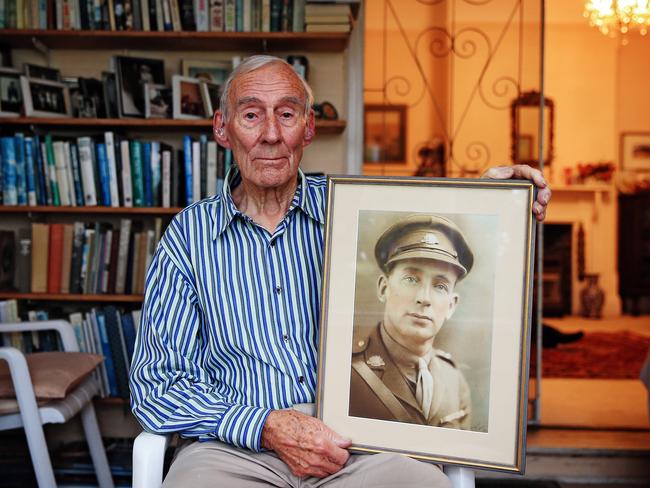
This week, the 93-year-old won’t have to close his eyes to see. His feet will rest on the bare gravel of the outpost that carries his family name; the Lone Pine position his father valiantly protected for two days under some of the most brutal fighting and wanton slaughter of the ill-fated Gallipoli campaign.
Finally he is here, to honour his father, his hero, 100 years after the audacious deeds that brought him renown.
DEATH BY DISEASE IN FLY-BLOWN TRENCHES
WARREN BROWN GALLIPOLI DIARY DAY 1
HORSE A GALLIPOLI LEGACY, 100 YEARS ON
Rain pelting down on his tin roof, a noble shrine to his father decorating the wall, a necessary decanter of brandy on the shelf, this is where Richard Youden comes to think upon those deeds.
This squeezy garden-view sunroom in the corner of his Vaucluse apartment; tiny, but roughly double the size of Youden’s Post, now in the shadow of Lone Pine’s white obelisk.
“My dear old dad defended that post for two days, and he said it was awful. They bombed him constantly. Eventually he was wounded, as you would expect,’’ Mr Youden said.
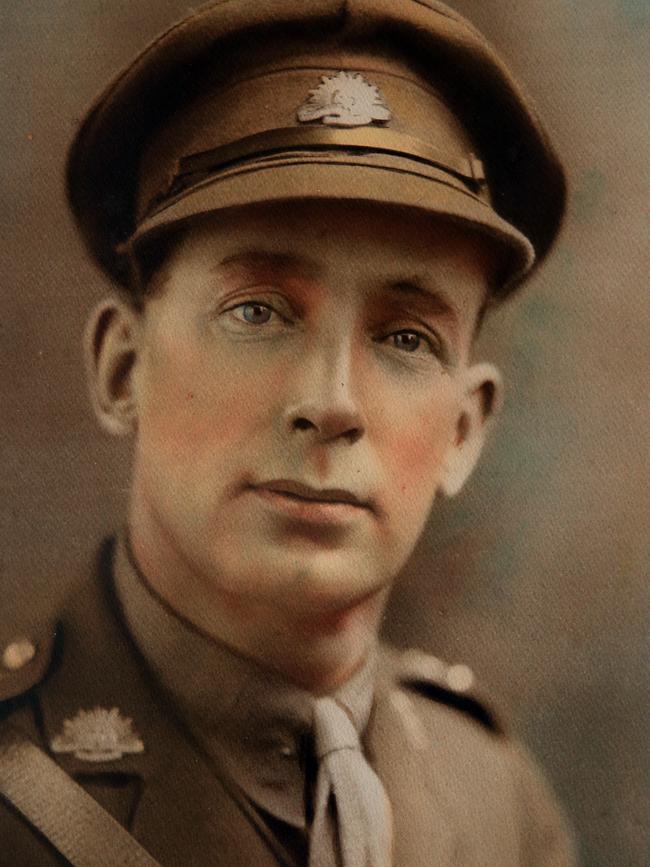
“He said it was one of the most intense periods of the whole war. They were actually treading on their own dead. It was so fierce it was hand-to-hand stuff with bayonets and he had to go over and rip the logs off the trenches and drop down into darkness full of Turks.
“For two days he did that. How he survived it, I will never ever know. He said it was just plain luck. Just plain luck.’’
Mr Youden has no doubts that his father deserved a Victoria Cross for his daring defiance, but with his commanding officer Robert Scobie killed in the assault, there was no-one to recommend him.
“Was he hard done by? He never saw it that way. I think he was just happy to get out alive.’’
By war’s relieving end, the farmer who enlisted as a private from Condobolin was a Lieutenant-Colonel and commanding officer in the feted 2nd Battalion, having chalked up meritorious service in Gallipoli, Pozieres, Ypres and Bullecourt
From Youden’s Post this week, the 93-year-old will trudge towards the Lone Pine memorial and run his fingers along the grooves of a familiar name — his Uncle Fred.
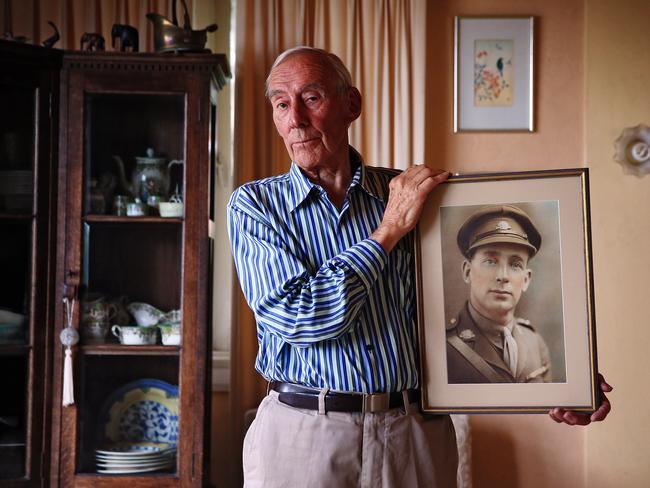
His dad’s brother died during an attack on Hill 971, the very same day his brother was doggedly defending his post a few hundred metres south along the ridge.
It is no surprise to Mr Youden that the same courage was shown, simultaneously. After bolting from the trench, Uncle Fred was shot in the hand, then shot in the thigh, but maintained his assault on the marauding Turks.
“He refused to return or stop firing though wounded both in the hand and the left leg,’’ a Red Cross report claimed.
His body was never found.
“There were five Youden boys and two didn’t make it home. That was pretty tough on the parents. The youngest, Sidney, was killed on the Hindenburg line a couple of months before the end of World War I,’’ Mr Youden said.
It is this courage that he himself adopted when faced with the Japanese aggression on New Guinea. Obviously, he sought advice from his father when enlisting for World War II, and obvious the response was.
“Keep your bloody head down,’’ his dad urged.
He should know.
The sprightly nonagenarian concedes it will be difficult to keep the eyes dry when that bugle sounds over Anzac Cove, when he stands at Youden’s Post and fathoms the heartache and heroics of his own flesh and blood.
“It will be pretty emotional, I think. Just having that close association.’’
“I’m very proud of him.’’
Originally published as Richard Youden, 93, travelling to Gallipoli in the footsteps of his father


